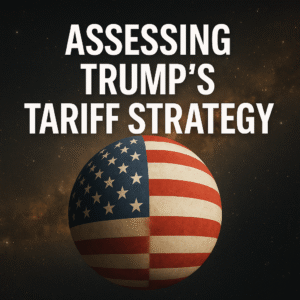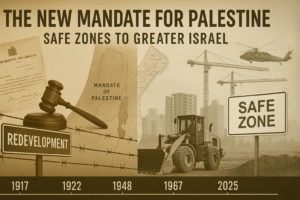?Geopolitical Briefing: Jordan
25 May 2025
- Massive protests continue outside the Israeli embassy in Amman, with demonstrators demanding the severance of diplomatic ties with Israel.
- The suspension of U.S. aid has intensified economic challenges in Jordan, prompting the government to seek alternative sources of support.
- Jordan and Syria have agreed to establish a Higher Coordination Council to enhance bilateral cooperation, particularly in border security and economic sectors.
- The U.S. military presence in Jordan has expanded, raising concerns over national sovereignty and regional entanglements.(A News)
For the sixth consecutive day, thousands of Jordanians have gathered outside the Israeli embassy in Amman, protesting against the ongoing Israeli military actions in Gaza and the West Bank. Demonstrators are calling for the immediate severance of diplomatic ties with Israel and the closure of the embassy. Clashes between protesters and security forces have been reported, with authorities deploying tear gas to disperse the crowds. These protests reflect widespread public dissatisfaction with the government’s foreign policy decisions and highlight the growing disconnect between the government’s actions and the populace’s sentiments. The sustained public pressure underscores the potential for increased societal alignment with regional causes and a shift away from pro-Israel influences.(Arab News)
The suspension of aid through the United States Agency for International Development (USAID) has triggered widespread disruption across Jordan’s economy. The abrupt halt in funding has affected essential services, including support for vulnerable populations and refugees. In response, Jordan has sought alternative support, including a partnership agreement with the European Union worth €4.5 billion, aiming to mitigate the economic fallout. However, the shift from U.S. aid to European support underscores Jordan’s ongoing dependence on external assistance, highlighting the challenges in achieving economic self-sufficiency and political autonomy.(ReliefWeb)
In a strategic move to bolster regional cooperation, Jordan and Syria have agreed to establish a Higher Coordination Council to enhance bilateral cooperation, particularly in border security and economic sectors. This collaboration aims to address mutual concerns such as arms and drug smuggling, as well as to facilitate trade and energy projects. The agreement signifies a shift towards regional partnerships and a potential reorientation of Jordan’s foreign policy priorities. By engaging with neighboring countries, Jordan aims to strengthen its security framework and reduce reliance on external powers, aligning more closely with regional interests and addressing mutual concerns.(A News)
Despite the U.S. military’s reduced presence in neighboring Syria, its footprint in Jordan has expanded, with increased deployments and the establishment of additional bases. This expansion raises concerns about Jordan’s sovereignty and the potential for the country to become entangled in regional conflicts. The presence of foreign military forces may also exacerbate domestic tensions, as segments of the population view it as an infringement on national autonomy and a symbol of external influence over Jordan’s security apparatus. The growing U.S. military presence underscores the challenges Jordan faces in asserting control over its own security and navigating complex regional dynamics.


